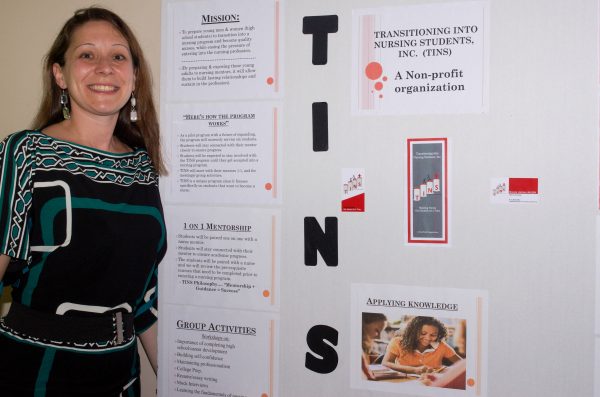Nonprofit Profile: Preparing the next generation of nurses

After receiving several e-mails from Lawyers Clearinghouse about pro bono opportunities, Linda Groves, a partner at Bingham McCutchen, found one that touched her personally. As the business pro bono coordinator at her firm, she regularly promotes cases offered by Clearinghouse to other Bingham attorneys. This time, Linda found a case that was too good to pass up. She says her background in nursing—her profession before she made the switch and went to law school—is what sparked her interest in helping a local nonprofit get off the ground.
Then she met Nicole Ashton Rice—a passionate nurse launching a nonprofit to help prospective nursing students navigate the process of entering a nursing program. “When I spoke with Nicole, I found she was a remarkable person who was going to make this happen no matter what happened,” Linda says.
Rice works both at Boston Medical Center and Boston Health Care for the Homeless Program, teaches at Simmons College and is earning her Master’s of Science in nursing online from Saint Joseph’s College in Maine. Her latest project—another selfless act—required her to ask for a little assistance, so she started attending the Clearinghouse’s nonprofit seminars.
Since then, she has been working with Linda, who volunteered to help Nicole draft the bylaws for Transitioning Into Nursing Students (TINS) and file for tax exempt status. The program pairs nurses with students who want to enter a nursing program, but are not sure how to go about it. The target group is teens entering community college who might not have the academic guidance or personal support to make it into a nursing program on their own.

“When these young men and women graduate high school the ties are cut. There’s no guidance counselor,” says Rice. She added that the waiting lists for community college nursing programs can last two to three years, during which prospective nursing students should be focused on taking the proper prerequisites. However, often times students do not realize which courses they have to take and find themselves unprepared once a place in a nursing program finally opens up for them.
“For people who need that extra boost, her help will be enormous,” Groves says. “Many of these people would not be going to nursing school if it wasn’t for her.”
Groves says she is happy to work with TINS pro bono because she believes the program will also help solve a larger problem in the nursing field. Both Groves and Rice mention the pending nursing shortage, which is expected to peak by 2020 as the baby boomer generation retires. They see TINS as one way to get more nurses into hospitals and doctors’ offices.
However, Rice wants to make it clear that she does not want to convince students to go into nursing, but rather wants to make sure those who have the desire also have the support to succeed. “Even if they decide that nursing isn’t for them, then at least they’re walking away with some of life’s tools,” Rice says.
After holding two fundraisers including an interactive Zumba party, TINS launched this fall and has matched three students with nurse mentors. Rice said she hopes to expand the program to 20 students in the next few years.
Anyone interested in learning more about TINS should contact Nicole Ashton Rice directly at tinsmass@yahoo.com.
For legal referral opportunities through Lawyers Clearinghouse, contact Machiko Sano Hewitt.
by Holly Hartung, Lawyers Clearinghouse